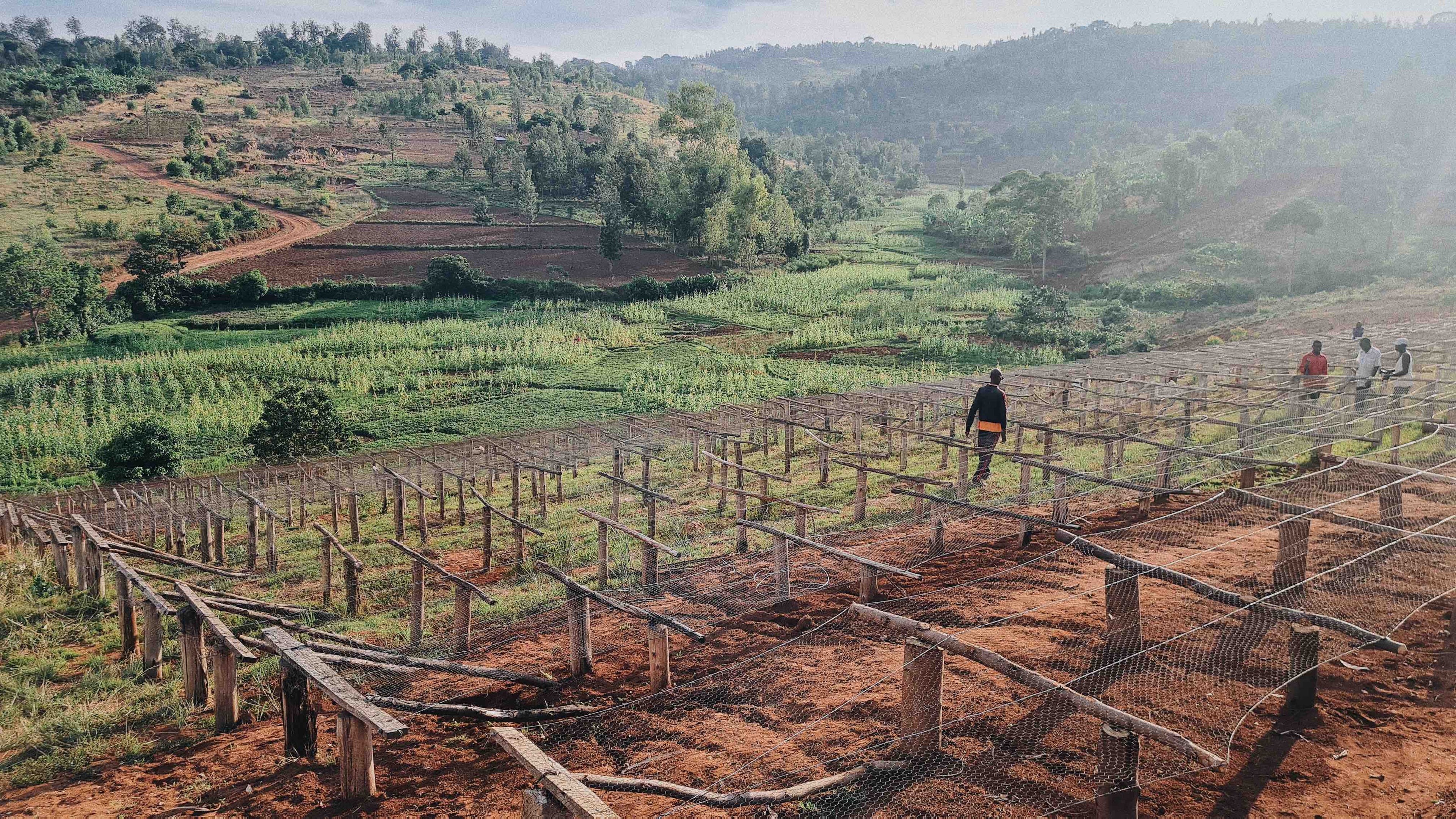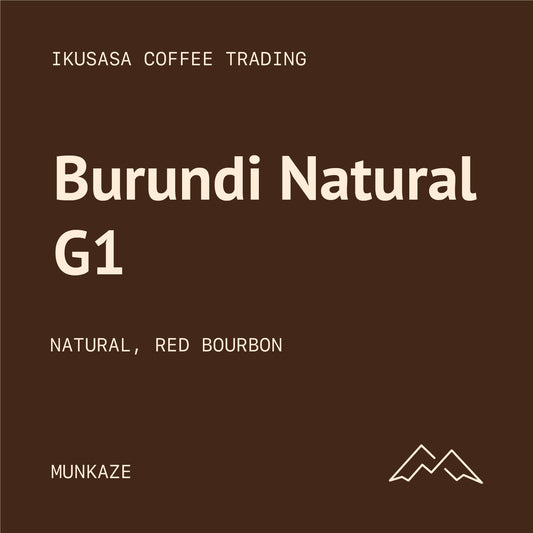MUNKAZE is recognized as the region with the most fertile soil for growing coffee. This is where some of the best quality Natural and Premium coffees are grown and harvested. MUNKAZE Processing Station is in the Buyenzi region in the province of KAYANZA which is near the Kibira forest and tea area at a height elevation.
Ephrem Sebatigita perpetuates a family tradition started with his grandfather, who was among the first coffee growers in the region. His grandfather Ntirandekura started growing coffee in the province of Kayanza in 1938. Ephrem has also had a Q-grader licence since 2010 and been a local judge for the Cup of Excellence years 2012,2013 and 2014.
The family has 2 farms of which one is in Rubagabaga which amounts to 22 hectares and holds 17 000 trees. Some of the coffee trees that were planted in the 1930s are still there, but in the past 4 years have been slowly replaced due to their age.
The second farm in Munkaze is near the coffee washing station. It holds 8 000 coffee trees and recently they have started to grow the Geisha variety from Guatemala amounting to 700 trees.
In total the farms hold about 30 000 coffee trees, but the main production is brought by smallholders around the washing station and the cooperative Twaranyuzwe, member of COCOCA Union. Over the years coffee from MUNKAZE Processing Station has won several awards at the ‘Cup of Excellence’ with SCA cupping scores of 85 to 90+.
FLAVOR NOTES
Most of the coffee produced at the MUNKAZE is characterized by the following profile:
- Sweet
- Bright Acidity
- Syrupy Body
- Juicy
- Blackberry, distinct Grapefruit
GENERAL INFORMATION
Processing Stations: Munkaze, Kayanza Province, Burundi
Harvest: March to June (depending on rainfall) - single origin arabica beans
Rainfall: 1300mm average
Honey Processed Beans: screen 15+
Natural Processed Beans: screen 15+
Altitude: 1800 – 2000m
Fertiliser: organic (coffee cherry pulp and livestock compost)
Soil and Water Assessment: very low emissions – virtually footprint free (documentation available on request). Grown in volcanic soil - soil that is rich in nutrients such as nitrogen, which coffee plants need, and tends to hold water well.
Varietal: Bourbon
Honey Process: After cherries are weighed and sorted (floaters removed), they are processed through the depulper that removes the skin of the cherries, exposing the sticky mucilage. The skinless cherries are placed onto raised beds, where they are left to dry naturally for an average of 11 – 17 days. They are intermittently agitated and inverted by hand, to prevent mold and fungal growth, and for uniform drying. The dried mucilage is then taken to the milling factory where it is hulled (mucilage and parchment removed) and then graded for export.
Natural Process: No machine intervention at the washing (processing) station. After cherries are weighed and sorted (floaters removed), they are placed on raised beds. The cherries are left to dry naturally for an average of 20 – 30 days. Cherries are intermittently agitated and inverted by hand, to prevent mold and fungal growth, and for uniform drying. The dried cherries are then taken to the milling factory where it is hulled (dried cherry skin and parchment removed) and graded for export purposes.


